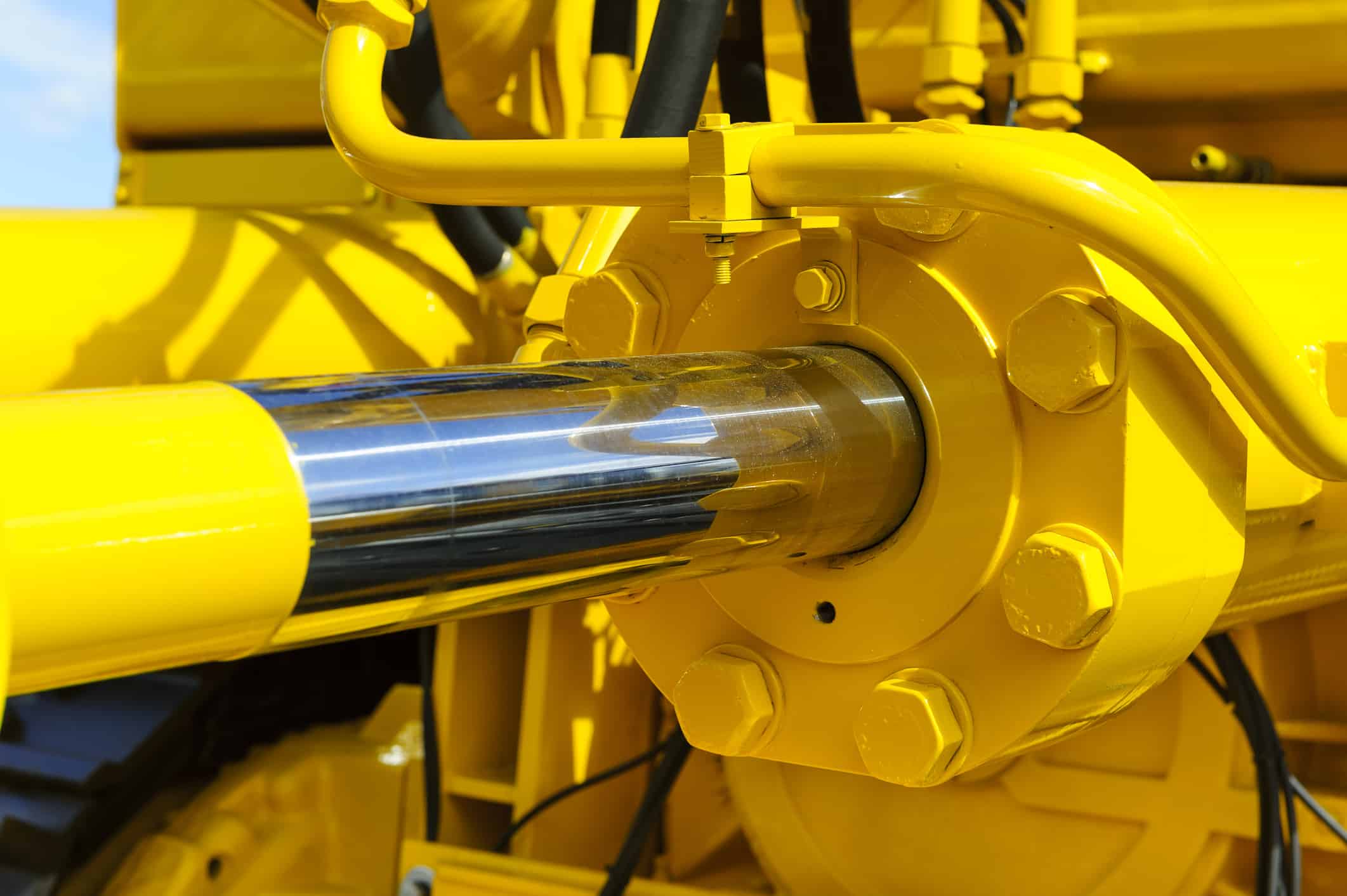

Through completion of this course, learners will gain a better understanding of:
• How the basic hydraulic theories are applied in practice
• The importance of good hydraulic filtration techniques
• The operation of pressure, flow and directional control valves and the applications in hydraulic circuits
• Hydraulic pumps and motors and the control thereof
• Hydraulic cylinder construction and good sealing practices
• Basics of Fluid Power connectors and hose assemblies, good practice techniques and the different threads found in hydraulics
• The basics of hydraulic circuit applications
• The different types of hydraulic control systems and the effect on energy usage
• Maintenance and troubleshooting techniques
• Understand the characteristics, generation and preparation of air.
• Identify various schematic symbols used in pneumatics.
• Design a basic pneumatic schematic drawing from a given requirement.
• Identify various components and their operation used in pneumatics.
• Use pneumatic components effectively in circuits.
• Describe the maintenance requirements of each component.
• Safe work practices for hydraulics and pneumatics.
This Hydraulic System Course would be suitable for:
• Mechanics Fresh Graduates
• Operators Service
• Technicians Programmers
• Planners/Application Engineers,
• Managers
• Technical Trainers
• Those who are seeking a career change related to Hydraulic Systems
• Engineers who deal with equipment that is hydraulically operated
• Lectures
• Workshop & Work Presentation
• Case Studies and Practical Exercise
• Videos and General Discussions
Day 1
Module 1: Introduction to Hydraulic Systems
• Fluid Power and Its Scope Hydraulic
• Fluids Characteristics
• Hydraulic and Pneumatic System
• Applications of Hydraulic Systems
Module 2: Hydraulic System Components
• Hydraulic System Basic Components
• Measures for the Selection of Hydraulic System
• Components Open and Closed Loop Hydraulic System
• Hydraulic System Symbols Part
Day 2
Module 3: Principles of Hydraulics and Hydraulic Fluids
• Pascal’s Law Main Components of a Hydraulic System
• Filters, Reservoirs, and Accumulators
• Closed and Open Loop
• Properties of Hydraulic Fluid
• Types of Hydraulic Fluids
• Fluid Selection
• Problems Related to Hydraulic Fluids
Module 4: Hydraulic Pumps & Actuators
• Classification and Performance of Hydraulic Pumps
• Variable and Fixed Displacements Hydraulic Pumps
• Gear Pumps
• Vane Pumps
• Piston Pumps
• Pressure Compensator and Load Sense Control
• Hydraulic Cylinders
• Hydraulic Motors
Day 3
Module 5: Control Valves
• Classification of Control Valves
• Direct-Acting and Pilot-Operated Valves
• Pressure Control Valves
• Directional Control Valves
• Flow Control Valves
• Meter In and Meter out
Module 6: Operation and Hydraulic Circuits
• Operator Responsibilities
• Symbol of Hydraulic Components
• Operation of Regenerative Circuits
• Counterbalance Circuits
• Decompression Circuits
• Hydraulic Circuits of Various
• Case Studies
Day 4
Module 7: Cylinders
• Acting Cylinders
• Two-piston Cylinders
• Positional Cylinders
• Cylinder Construction
• Rings, Seals, and Packing
• Cylinder Mounting and Selection
• Flow Capacity Cushioning
Module 8: Hydraulic Motors
• Performance Specifications
• Starting, Running, and Stalling
• Torque Volumetric Efficiency
• Hydraulic Motor Construction
• Gear, Vane, and Piston Motors
Module 9: Maintenance and Troubleshooting of Hydraulic Systems
• Flow Chart of Hydraulic Circuits
• Troubleshooting Different Parts of Hydraulic
• Systems Assembling and Disassembling
• Hydraulic Units Inspection and Testing of Hydraulic
• Systems Maintenance of Hydraulic Systems
• Hydraulic System Contamination
• Hydraulic System Troubleshooting
Day 5
Module 10: Pneumatic System fundamentals
• Pneumatic System (Comparison Between Hydraulic and Pneumatic Systems)
• Fundamentals of Pneumatic Circuit (Circuit Diagram)
• Logic Control Circuit
• Installation of Pneumatic System Experimentally
• Pneumatic Circuits experimental
• Control of single acting cylinder
• Control of double-acting cylinder
• Flow control
Module 11: Design, analyze and troubleshoot industrial pneumatic systems.
• Distinguish the various types of compressors used in pneumatic systems in terms of their function and applications.
• Explain the various types of flow controls and valves used in pneumatic systems.
• Differentiate the various types of linear and rotary actuators used in pneumatic systems in terms of their function and applications.
• Design and troubleshoot pneumatic systems.
CDGA attendance certificate will be issued to all attendees completing a minimum of 75% of the total course duration
| Code | Date | Venue | Fees | Register |
|---|---|---|---|---|
| ME181-02 | 19-04-2026 | Dubai | USD 5450 | |
| ME181-03 | 12-07-2026 | Muscat | USD 5450 | |
| ME181-05 | 25-10-2026 | Amman | USD 5450 |
Providing services with a high quality that are satisfying the requirements
Appling the specifications and legalizations to ensure the quality of service.
Best utilization of resources for continually improving the business activities.
CDGA keen to selects highly technical instructors based on professional field experience
Since CDGA was established, it considered a training partner for world class oil & gas institution
3012, Block 3, 30 Euro Business Park, Little Island, Co. Cork, T45 V220, Ireland
Mon to Fri 09:00 AM to 06:00 PM
Contact Us anytime!
Request Info